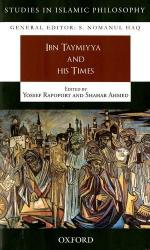|
This section contains 292 words (approx. 1 page at 300 words per page) |
Averroes (Ibn Rushd) largely disappeared from the Islamic world after his death in 1198, but returned through the influence of Ernest Renan, who in the nineteenth century presented Averroes as a hero of rationalism and antireligious skepticism. Many Arab intellectuals were educated in France and came into contact with Renan's views, and they played a large part in the Islamic renaissance movement (al-Nahḍa). This was designed to combine adherence to religion with a commitment to reason, something that Ibn Rushd was regarded as exemplifying in his life and work. His work has been used to oppose the forces of conservatism and traditionalism in the Arab world. Averroes was in his life also opposed by the local religious authorities, as are his modern supporters in the Arab world.
The tanwīr—or enlightenment movement—is more radical than the Nahḍa because it often is highly critical of the influence of established religion. Its central text is Falsafat Ibn Rushd by Faruḥ Antūn, as well as the books of al-ʿĀṭif al-ʿIrāqī on Averroes. Although of limited influence in the Arab world as a whole, and even in Egypt where it has some presence in the universities of Cairo, this movement has created considerable intellectual discussion among Arab philosophers. Its critics regard it as too aligned with the West and too antagonistic to Islam, but proponents of the tanwīr movement argue that only a radical separation of faith and politics can initiate an appropriate degree of modernity into the Arab world.
See Also
Averroes; Averroism; Islamic Philosophy.
Bibliography
Antun, Faruh. Falsafat Ibn Rushd. Beirut, Lebanon: Dar al-Farabi, 1988.
Wahba, Mourad, and Mona Abousenna, eds. Averroes and the Enlightenment Movement. New York: Prometheus, 1996.
|
This section contains 292 words (approx. 1 page at 300 words per page) |


